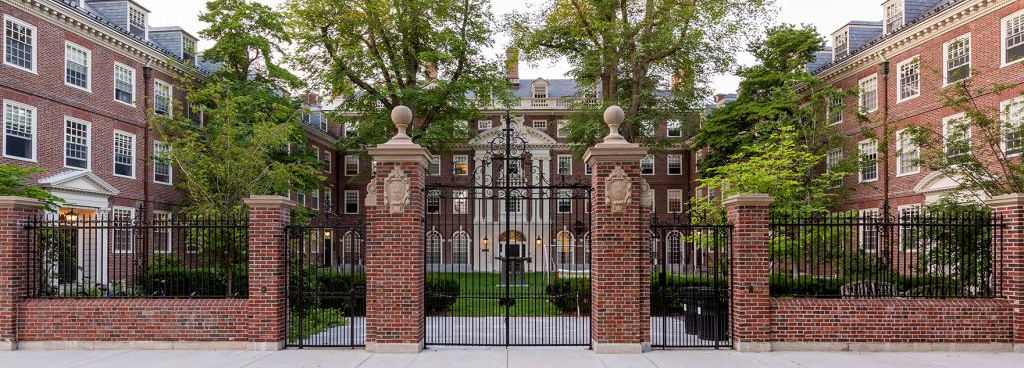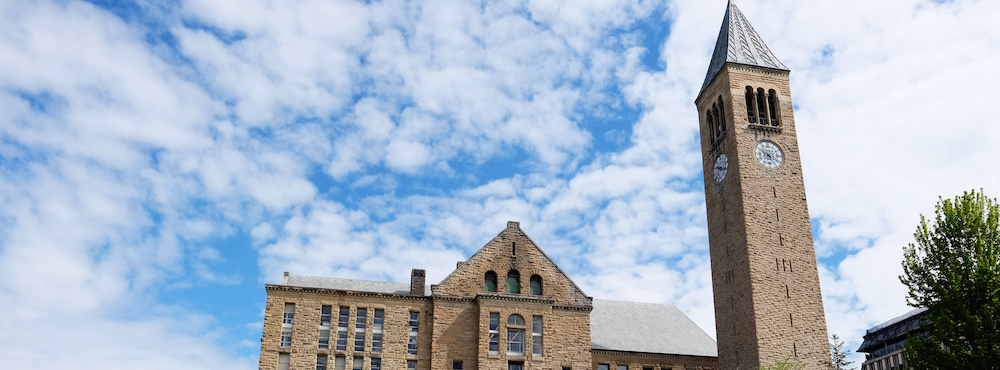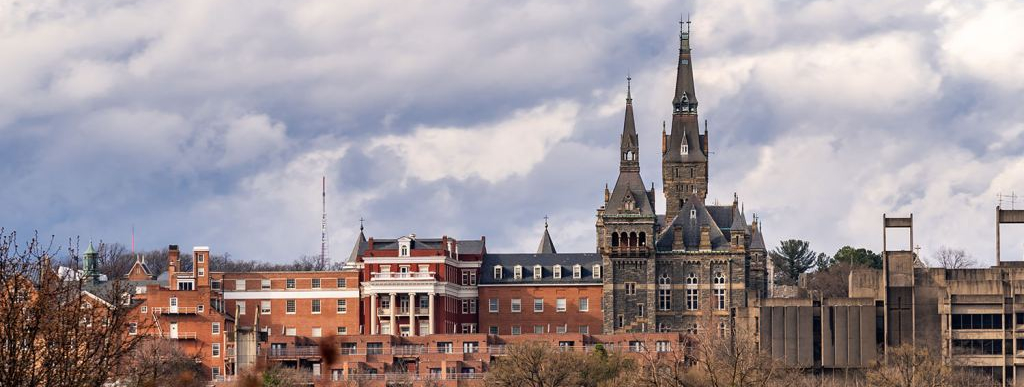IvyWise On-Demand: Lions and Tigers and…Crimson? (Oh My!) Discover Columbia, Princeton, and Harvard with Admissions Experts
Whether you are getting ready to start the college search process or are already finalizing your balanced college list, this is a great opportunity to learn all about Columbia, Princeton, and Harvard from those with firsthand admissions experience at these Ivy League universities.
Watch now
When it comes to college acceptances, many applicants view Harvard University as the gold standard for admissions success. While the Ivy League college may not be a best-fit option for every student, there’s no doubt that plenty of future applicants are eager to gain a seat in Harvard’s next class of admitted students. So, what does it really take to get in?
How to Get into Harvard University: Table of Contents
- When to Apply to Harvard University
- How Hard Is It to Get into Harvard: Early Prep
- How Do You Actually Get into Harvard: The Application
- Class Profile
- What Makes Harvard University Unique?
- Harvard University FAQs
When to Apply to Harvard University
Getting into Harvard University is a major accomplishment, but it doesn’t happen overnight. Gaining a seat at the top-tier institution takes time, hard work, dedication, and some careful planning. The first step is to develop an in-depth understanding of what goes into the application process and when you need to get started. Students submit their undergraduate applications to Harvard University during their senior year of high school and need to keep several important deadlines top of mind.
Harvard Deadlines
Harvard offers two admissions options, each with different deadlines. While these deadlines may fluctuate slightly from year to year, they generally fall around the same date. The deadlines for the 2024-25 admissions season are:
- November 1: Restrictive Early Action applications (standardized test scores requested by October 31)
- November 1: REA financial aid applications
- January 1: Regular Decision applications (standardized test scores requested by early November)
- February 1: RD financial aid applications
REA students can expect to receive an admissions decision in mid-December. Students applying RD can expect a decision at the end of March.
Early, Rolling, and Regular Decision
Many schools offer some flexibility around when applicants need to apply, and Harvard is no exception. First-year students can choose to apply Regular Decision or Restrictive Early Action. When choosing how to apply to Harvard, it is important to decide which application round is right for you. You may see additional application options as you apply to other schools.
Early application rounds give students the opportunity to hit submit sooner and learn their admissions fate well before their peers who choose to apply in the regular round. There are two types of early applications: Early Decision, which is binding and means committing to enroll upon acceptance, and Early Action, which is non-binding. Harvard’s Restricted Early Action falls somewhere between these two, as applicants may apply to public universities but are restricted from applying to additional private colleges in the early rounds.
Rolling applications allow students to submit their applications as soon as they are ready during their senior year. Generally, it’s best to submit your application on the earlier side, as RA schools continue to accept students until they reach their enrollment capacity. Usually, applicants will be notified of their school’s admissions decision several weeks after submitting their application.
Regular Decision is the most common admissions round. It’s non-binding, meaning students can apply to as many schools as they would like under this option.
Waitlisted Applications
Students who apply to Harvard Regular Decision may be admitted, denied, or waitlisted. In general, being waitlisted means that you will be considered for admission if the school needs additional students for its incoming class. You may wonder what to do if you get put on the waitlist.
You can accept or decline your spot, though it is worth noting that many highly competitive schools have very low waitlist admission rates. If you opt to stay on the Harvard waitlist, you may want to submit additional materials, such as a letter of continued interest and additional letters of recommendation.
Deferrals
If you apply REA, there is a chance that you will get deferred. A deferral means that the admissions office will review your application with the Regular Decision applicant pool. You may wonder what to do if you have been deferred. It’s important to follow the instructions given by Harvard admissions when you received your deferral — only send additional materials if they are requested.
How Hard Is It to Get into Harvard: Early Prep
Most students understand that it’s going to take a significant amount of hard work to gain admission into Harvard, starting from ninth grade. In fact, Harvard’s admission rates — among the lowest in the country — reflect how competitive it is.
- Class of 2025: 3.43%
- Class of 2026: 3.19%
- Class of 2027: 3.45%
- Class of 2028: 3.66%
Harvard looks at applicants holistically, meaning that you need to build a strong profile in terms of both academics and the activities you choose to pursue.
Build Your Profile
As an internationally renowned Ivy League university, Harvard values academic rigor and intellectual capability above all else. Like most colleges, Harvard looks for students who are passionate about academics and are specialists in their areas of interest. They also look for students who demonstrate strength of character, have taken on leadership roles in their extracurricular activities, and made an impact in their school and broader community.
To build your profile, aim for good grades in the most rigorous courses available to you. Identify opportunities to dive deep into your interests. And whenever possible, build your leadership skills in the classroom and through your activities.
Visit the Campus
To understand if Harvard is a good fit for you, it’s important to get a feel for the campus and understand what the academic environment is really like. One of the best ways to do this is by visiting the college.
You can visit Harvard either in-person or virtually. On-campus offerings include an information session and tour or a School of Engineering and Applied Sciences tour. You can also download a self-guided tour. Students who can’t come to campus can take a virtual tour and sign up for an online information session.
Connect with a Student
If you want to connect with a current Harvard student, the admissions office provides several opportunities. Student coordinators are available to answer questions — you can submit a contact form online and a student will reach out to you. Additionally, students are available at campus information sessions and tours.
Learn About Any Student Experiences
Take advantage of the opportunities to connect with student coordinators and tour guides by asking them about their experiences. You may want to write down a list of questions ahead of time. Harvard admissions also publishes Student Stories, which provide you with additional perspectives from current students.
How Do You Actually Get into Harvard: The Application
Since Harvard University is one of the most selective colleges in the country, it’s helpful to look at the data of the most recent classes to see how your profile compares in terms of hard factors like GPA and test scores. Your soft factors, like your essays and letters of recommendation, should paint a picture of you as a smart, mature, and capable student.
GPA Requirements
While there isn’t a clearly defined minimum GPA that students need to aim for to get admitted, Harvard provides information in their Common Data Sets about the averages for their most recent class of admitted students. For the class of 2027, the average GPA weighted was 4.2.
SAT and ACT Scores
Harvard University requires standardized test scores, so it’s important to develop good test-taking strategies to maximize your SAT or ACT results. Submitting an impressive test score demonstrates your ongoing academic commitment and overall college readiness. When it comes to SAT/ACT ranges to aim for, most students admitted to Harvard are nearing the top percentiles for performance. Most recently, the middle 50% range for admitted students was 34-36 for the ACT Composite, 740-780 for SAT Reading and Writing, and 760-800 for SAT Math.
Personal Statement
Many applicants to Harvard are comparable in terms of GPA and test scores, making your personal statement an important differentiator. You can choose from among seven Common App essay prompts, which allows you some flexibility and creativity to tell your story. If done well, your personal statement should tell Harvard admissions something different about you that isn’t already mentioned in your application.
Essays
In addition to personal statement, students must write the Harvard University supplemental essays. Often these essays are evaluated to learn more about a student’s level of demonstrated interest and to develop a better understanding of your character and academic goals.
For 2024-25, Harvard requires students to respond to five prompts, each no more than 150 words.
- Harvard has long recognized the importance of enrolling a diverse student body. How will the life experiences that shape who you are today enable you to contribute to Harvard?
- Describe a time when you strongly disagreed with someone about an idea or issue. How did you communicate or engage with this person? What did you learn from this experience?
- Briefly describe any of your extracurricular activities, employment experience, travel, or family responsibilities that have shaped who you are.
- How do you hope to use your Harvard education in the future?
- Top 3 things your roommates might like to know about you.
Letters of Recommendation
Students will need to submit their Harvard letters of recommendation from two teachers who teach different subjects. An evaluation form from each teacher must also be submitted. Once your application is submitted, Harvard will accept additional recommendation letters from people you have worked closely with, such as a coach or internship supervisor.
Admission Interviews
Harvard does not require interviews as part of the admissions process; however, you may be invited to speak with an alumni interviewer. These opportunities are based on alumni availability. If you are contacted about an interview, take advantage of the opportunity to ask questions about Harvard and the student experience. Students who are unable to interview will not be penalized in the admissions process.
Contribution to the Harvard Community
Like every college, Harvard admissions officers look for students who are going to make an impact on campus. When you’re compiling your application, you should continuously ask yourself, “What does this reveal about me and the role I will play on campus?” After reading your application, admissions officers should have an in-depth understanding of exactly what classes, clubs, and research opportunities interest you, and what you’re hoping to do after graduation.
Class Profile
It’s important to check out recent class profiles to gain a better understanding of admissions outcomes. Let’s look at some basic data for the class of 2027.
What Makes Harvard University Unique?
There are quite a few things that set the institution apart and attribute to Harvard’s graduation rate. Founded in 1636, Harvard is the oldest college in the U.S. Campus life is enriched by long-standing and cherished traditions, including the annual football rivalry with Yale that began in 1875. Harvard’s location in Boston makes it ideal for students who want a close-knit campus feel with all the internships and pre-professional opportunities that come with being in a major metropolitan area.
More than 25 libraries and archives across campus and beyond comprise the Harvard Library, the largest academic research collection in the world. Noteworthy museums and arts institutions include the Harvard Art Museums, Carpenter Center for the Visual Arts, metaLAB, and Graduate School of Design Exhibitions.
Approximately 80% of Harvard students are involved in athletics, which include 42 Division I intercollegiate varsity teams, as well as intramural and club teams. Other activities include seven orchestras, a school newspaper on the Associated Press wire, and student-run clubs for every interest from religion to politics to public service.
Harvard has produced many notable alumni during its storied history, including Leonard Bernstein, Yo Yo Ma, Helen Keller, Matt Damon, Natalie Portman, Conan O’Brien, Natalie Portman, e.e. cummings, T.S. Eliot, Neil deGrasse Tyson, Henry Kissinger, Mark Zuckerberg, John D. Rockefeller, and many more. U.S. presidents who attended Harvard include John Adams, John Quincy Adams, Theodore Roosevelt, Franklin D. Roosevelt, John F. Kennedy, George W. Bush, and Barack Obama.
Harvard University FAQs
Where is Harvard University?
Harvard’s campus is in Cambridge, Massachusetts — part of the Boston metropolitan area.
What is Harvard University known for?
Harvard is the oldest postsecondary institution in the U.S. and one of the most prestigious in the world. It has several renowned programs and is widely respected for its contributions to research and innovation.
How many students attend Harvard?
Approximately 25,000 undergraduate and graduate students are currently enrolled at Harvard.
What is the difference between Harvard College and Harvard University?
Harvard College is the undergraduate college within Harvard University. Harvard University comprises the entire institution, which includes graduate schools.
What is the acceptance rate for Harvard University?
Harvard’s acceptance rate is among the lowest in the U.S. — it has been below 4% for the past several years.
What GPA do you need to get into Harvard University?
Harvard does not specify a GPA for admission; however, the average GPA (weighted) for first-year students in fall 2023 was 4.2.
Admission Counseling
As you have discovered, getting into Harvard isn’t easy. Students will be competing with peers across the globe and vying for a seat at one of the most selective universities in the world. Given the complexities of the application process and the high volume of applications Harvard receives, working with an admissions specialist can help applicants stand out for all the right reasons.
Students can gain admission to Harvard without working with a specialist. However, an experienced college admissions counselor knows what colleges are looking for and will help you prepare an application that will showcase what you’ll bring to campus in the best light possible. If Harvard is one of your top-choice schools, take the first step toward admission and schedule an Initial Consultation.
Get Started




